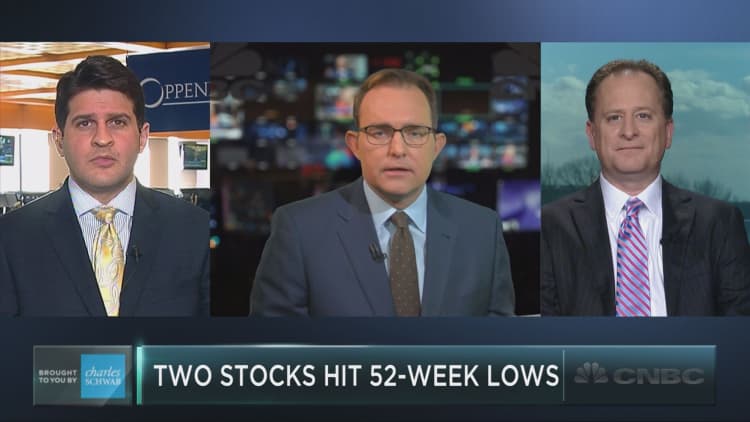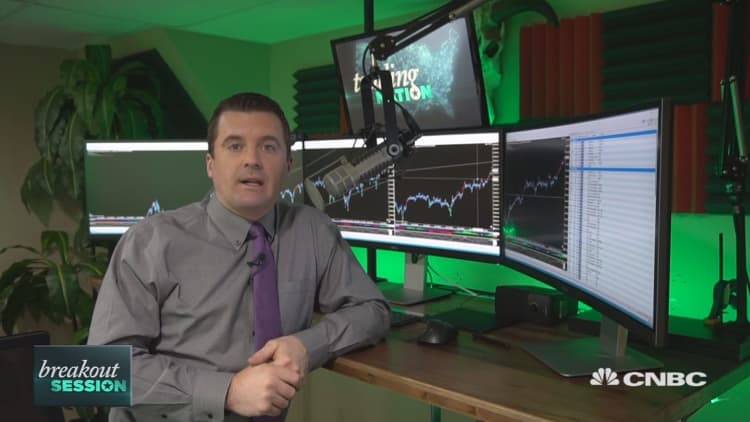


Long-term investors ought to use the recent market rally to cut back on their equity holdings, according to Yale professor of economics Robert Shiller.
The forward price-earnings ratio, a common measure of market valuations that compares the index's to analysts' consensus expectation for earnings over the next year, is now at the highest level since 2004, according to information from S&P Global.
The cyclically adjusted price-earnings (or CAPE) ratio developed by Shiller shows even greater overvaluation; that metric, which compares current prices to average earnings over the past 10 years adjusted for inflation, is more elevated than it's been since 2002.
The CAPE ratio, which aims to measure earnings over the course of an entire business cycle, is "high enough to worry about," Shiller said Thursday on CNBC's "Trading Nation." "At this level, it suggests that the expected returns for stocks might be negative, but only slightly so."
Shiller is quick to add that since short-term moves are nigh impossible to forecast, the metric "is not suggesting, necessarily, any imminent disaster."
Still, the current level of the CAPE ratio "would suggest reducing your holdings of stocks, especially for a long-term investor. We can't time the market accurately, but we know that when it's this high, over the long term, it usually doesn't do great."
In 2013, Shiller shared the Nobel Memorial Prize in Economic Sciences with Eugene Fama and Lars Hansen for "[laying] the foundation for the current understanding of asset prices." Shiller's work, including on the CAPE ratio, was specifically noted to have "identified a variety of variables that forecast future stock returns."
Despite the mainstream acclaim, the CAPE ratio has been the subject of widespread dispute and even controversy. Many have noted that the CAPE ratio does not integrate the level of bond yields, which are traditionally viewed as a key determinant of proper equity values. Of course, yields remain historically low, which could mean that stock prices deserve to be a bit higher as compared to earnings than would normally be appropriate.
A bit more esoterically, Wharton professor of finance Jeremy Siegel has pointed out that accounting standards have not remained consistent over time. Siegel argues that since companies now report profits more conservatively than they used to, recent earnings numbers are depressed, and valuation levels unnaturally elevated.
For his own part, Shiller grants that "the CAPE ratio has been relatively high for 20 years now, so you might imagine that something has changed," but added, "on the other hand, maybe not — it's been a fairly reliable indicator."
"My general thought is that I think it's quite reasonable to have an investment in U.S. stocks as part of a diversified portfolio," Shiller said Thursday. "Just don't go overboard on it."






